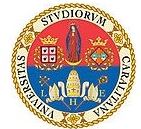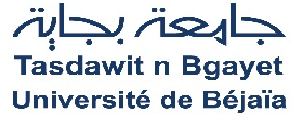
Role: Coordinator
Beneficiary Legal Name: University of Cagliari (UNICA) – Italy
Web site: http://www.unica.it/
Address: Via Trentino 51, 09127 Cagliari, Italy
Contact Person: Dr. Giovanni De Giudici
Position: Researcher
Email: gbgiudic@unica.it
The University of Cagliari was founded in 1606. At present the University of Cagliari comprises 17 Departments belonging to seven faculties. The University of Cagliari is a public state University and has about 31,102 enrolled students, over 1,000 teaching staff and more than 1,000 professionals at the technical-administrative staff. Besides that, yearly about 200 visiting professors come to Cagliari’s University. The Department of Chemical and Geological Sciences of the University of Cagliari has been recently founded from the historical Chemistry and Earth Science Departments.
The Group of Mineralogy and Geochemistry has 35 years long experience in investigating heavy metal mobility in mine areas. This group organized many international congresses (WRI 10, IMWA 2007), lead UE project (WAQUAMINAR) and participated to international research projects on mine environment management (Environmental Issues Related To Abandoned Mine Sites).
__________________________________________________________________

Beneficiary Legal Name: Centro di Ricerca, Sviluppo e Studi Superiori in Sardegna (CRS4) – Italy
Web site: http://www.crs4.it/
Address: Loc. Piscina Manna, Edificio 1, 09010 Pula (CA), Italy
Contact Person: Pierluigi Cau
Position: Researcher
Email: plcau@crs4.it
CRS4 (Center for Advanced Studies, Research and Development in Sardinia) is a not profit, interdisciplinary research center promoting the study, development and application of innovative solutions to problems stemming from natural, social and industrial environments. CRS4 was established in 1990 and is located within the “Science and Technology Park” (Polaris), a point of attraction for high-tech research 40 km from Cagliari (Italy). Information Society and Technology and High Performance Computing are CRS4 supporting foundations. The main objective is innovation. The mission is to help to build and support a layer of modern high tech industries considered essential to the economic and cultural development of Sardinia.
__________________________________________________________________

Beneficiary Legal Name: Italian National Agency for New Technologies, Energy and Sustainable Economic Development (ENEA) – Italy
Web site: http://www.enea.it/it
Address: Via Anguillarese 301, 00123 Rome, Italy
Contact Person: Dr. Anna Rosa Sprocati
Position: Researcher
Email: annarosa.sprocati@enea.it
ENEA has a permanent staff of about 2700 distributed in ten major research centres. In addition to advancement of basic knowledge, research activities aim to provide support for public policies and decision making, and to contribute to the development of innovative technologies featuring research in public/private partnerships. ENEA is concerned with energy efficiency, renewable energy sources, nuclear energy and sustainability of productive and territorial systems. For the Environment ENEA pursues its mission to protect and enhance the natural capital of the Country, through the characterization of the territory, the understanding of environmental processes, the definition of risk and vulnerability and the design of interventions of protection / preservation and restoration. A further important objective is to operate for the development and innovation of the national agro-industrial production system. The aim is to obtain food products using competitive, sustainable, and energy-efficient processes. To this purposes, ENEA carries on analysis and evaluation and develops methodologies and technologies for characterization, protection, management and environmental remediation, undertaking studies to understand the mechanisms and to assess the long-term trend on ecosystems and biodiversity caused by natural changes and / or by human activity. Research for the identification and mitigation of risks arising by natural or human activity is carried out with an ecosystem and multidisciplinary approach, also integrating expertise on different environmental media: terrestrial, fluvial, marine and transition. Research in agro-system aims at the development, and transfer of processing technologies and innovative diagnostic methods aimed at improving food quality and safety. Green and Microbial biotechnologies are applied to develop new approaches to exploiting and harnessing the metabolic potential naturally occurring in the ecological system to be considered. Within the fields of competence described above, the Agency also provides consultancy and specific services in support to Public Administration at all levels and to the Civil Protection Department.
__________________________________________________________________

Beneficiary Legal Name: Garoufalis Orchid Greenhouses (GOG) – GREECE
Web site: www.orchids.gr
Address: Garoufalis Orchid Green Houses
Island of Samos Mesokampos Mytilini GR-83101
Greece
Contact Person: Manolis Garoufalis
Position: Project Manager
Email: sailsforscience@gmail.com
Garoufalis Orchid Greenhouses (GOG) is a small to medium sized agro-horticultural (SME) company situated in the municipality of Pythagorio on the island of Samos, Greece in the Eastern Mediterranean. GOG is a dynamically growing company and was established in 1998 by the present owners Mr. Manolis Garoufalis and Mr. Nikos Garoufalis.
GOG embraces agricultural land of various ha and about 15000 m2 greenhouse facilities. GOG is applying up-to-date cultivation techniques, modern facilities with technical monitoring and strives for continues improvements through scientific and environmental advice to improve the sustainability of the enterprise in its local environment. As SME, GOG has a head count of 5 full-time employees. The company employs an agronomist graduated from the Agricultural University of Athens and a technologist graduated from the Technological Educational Institute (TEI) of Larissa besides farmworkers.
GOG became a pioneer in the production of orchids, namely of cymbidium species under local climatic conditions, as well as other produce. The cultivation of orchids in Greece takes exclusively place on the island of Samos. GOG has experience in the implementation of services from European agricultural biotech companies to improve its propagation methods and results. GOG aims to improve the deployment of its cultivation methods to achieve optimized utilization of resources as equipment, acreage, water, fertilizer, and manpower in a circular manner from cultivation, production until final disposal. GOG produces for the domestic and foreign markets. GOG is continuously exploring the cultivation of other crops and plants to benefit from the local conditions and give back to the local community. GOG is developing propagation methods for the sustainable production of flour from plant roots and tubers containing glucomannan which powder is consumed in beverages and desserts, as the popular Kahramanmaraş icecream, in Turkey, Greece, and the Levanth. GOG integrated into its business model corporate socio-environmental responsibility. In accordance with the realities of the rapid eradication of native plant species due to the harvesting for salep flour production and ongoing climate change, an integral part of GOG’s mission is the development of such food crops that may be cultivated on Samos island in a sustainable manner, however, still to support local tradition and support local job creation.
GOG holds the appropriate national and local certifications necessary to conduct this project within the premise of GOG and operates in compliance with the requirements of Good Laboratory Practice (GLP) in accordance with EU Directive 88/320/EEC
__________________________________________________________________

Beneficiary Legal Name: Agricultural Research Institute (ARI) – Cyprus
Web site: www.ari.gov.cy/
Address: Address: P.O.Box 22016, 1516 Nicosia, Cyprus
Contact Person: Michalis Omirou
Position: Researcher
Email: michalis.omirou@ari.gov.cy
The UN Food and Agriculture Organization (FAO) 50 founded the Agricultural Research Institute (ARI) years ago. Throughout the years, ARI produces high quality research in Agriculture and received a big recognition for its overall contribution when it was declared as a scientific “Center of Excellence” in 2000, through a competitive FP5 call. Our research group has been heavily involved in environmental microbiology, organic farming, plant breeding and agriculture-climate change related projects. Within this frame, ARI coordinated several research projects regarding the impact of green manures on soil microbial community structure and activity. Moreover, our team leads a strong plant breeding and molecular genetics program, leading to the development of the main cultivated cereal and legume varieties in Cyprus, with emphasis on drought-tolerant crops, like barley and forages. Additionally innovative biotechnologically based approaches are currently under development in order to precisely implement environmental friendly practices. Finally, our work provides authorities and companies with a better basis for decision-making and a powerful competitive edge, based on reduced impact on the environment and wiser management of natural resources.
ARI facilities include 3 main experimental field stations extending across Cyprus, used for in situ agricultural research and plant breeding, as well as modern equipment and laboratory facilities for molecular biology (PCR, qPCR) and microbial ecology as well as microbial inoculation technologies (spray dryer, bioreactors). Plant – microbe interaction facilities are also available for research (microscopes, controlled conditions walking rooms etc). Plant secondary metabolites and chemical analysis is performed in high quality laboratories equipped with state-of-the-art facilities, including mass spectrometry instrumentation (LC-MS/MS, GC-MS).
________________________________________________________________

Beneficiary Legal Name: Université de Béjaia
Faculté des Sciences de la Nature et de la Vie Département des Sciences Alimentaires Laboratoire Biomathématiques Biophysique Biochimie et de Scientométrie (L3BS) – Algeria
Web site: http://www.univ-bejaia.dz/
Address: Route des Mezaia tergua ouzemmour 06000 Béjaia Algérie
Contact Person: Khodir Madani
Position: Professor
Email: khodir.madani@univ-bejaia.dz, madani28dz2002@yahoo.fr
The L3BS team, led by Khodiri Madani (Senior Scientist), belongs to the direction de la Recherche Scientifique et du Développement Technologique, DGRSDT, affiliated to the university of Bejaia (Algeria). It is a multidisciplinary research laboratory. Its purpose is the development by research and industrial collaboration.
L3BS research activities is notably based on several national (PNR, CNEPRU) and international research partnerships (AUF, TASSILI, PHC Maghreb, AUCC, ENVIMED) with different countries (France, Canada, Italy, Spain, USA, Poland, Tunisia, Morocco, Malaysia, India, Jordan, Portugal).
The laboratory consists of 05 teams working on aspects of water resources, food technology and environment. Their objectives are (i) to evaluate the availability of the water resources with the climate change, (ii) to determine the influence of the climate change on the phyto resources with industrial interest, case study: improvement of soils and management of water resources due to agricultural production of ficus opuntia indica, (iii) flow and storage of water and solutes, which includes nitrogen, phosphorus, pesticides, and other compounds dissolved in the water, (iv) Eco processing innovation (Eco extraction, drying, etc…) for agricultural products and by-products.
__________________________________________________________________
 Beneficiary Legal Name: Prince Faisal Center For Dead Sea, Environmental & Energy Research – Mu’tah University (DSF) – Jordan
Beneficiary Legal Name: Prince Faisal Center For Dead Sea, Environmental & Energy Research – Mu’tah University (DSF) – Jordan
Web site: https://www.mutah.edu.jo/index.php?lang=ar
Address: Mutah 61710, Jordan
Contact Person: Prof. Tayel El-Hasan
Position: Director
Email: tayel.elhasan@gmail.com / tayel@mutah.edu.jo
Mutah University is located in Mutah town in Karak governorate, 135 Km south to the Amman, the capital city in Jordan. It was founded on 22 March 1981 by Royal Decree, to be a national institution for military and civilian higher education. Towards its mission, Mutah University strives to provide a broad range of lkearning and research opportunities that contribute to the sum of Human Knowledge and the achievement of sustainable development in the local community. Mutah University campus is consisting of twelve academic faculties and providing a multidisciplinary education system
